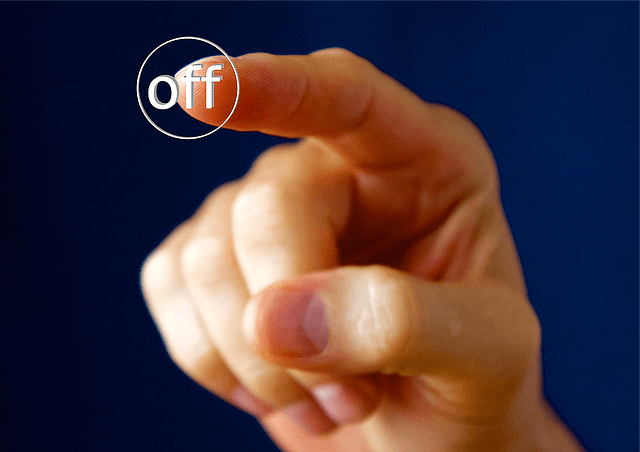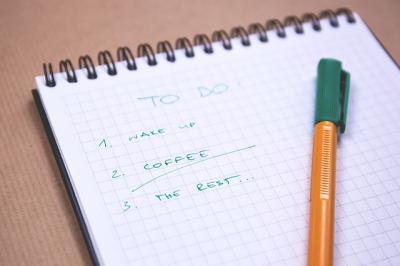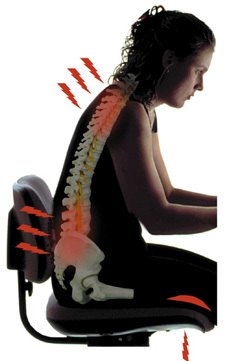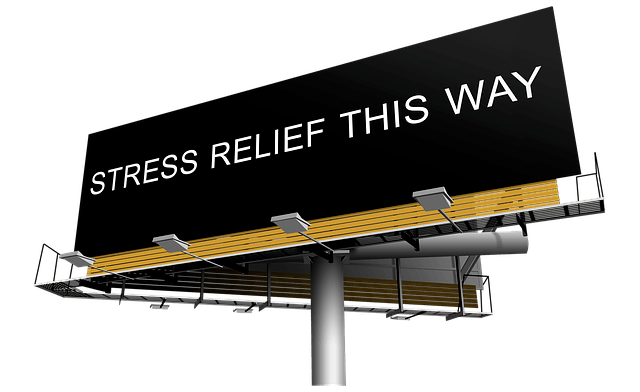If you are working in a fast-paced environment, stress reduction techniques are often very useful.
A lot of companies right now, including Google, Facebook, and Canva, are trying to promote stress-free workspaces. If you have seen pictures of their offices and compare it with your current cramped office space, you might think of going there to work. However, there is no denying that most people are still equating work to stress. This is often true with corporate work environments where people have to deal with tight deadlines and goals.
However, stress management at work does not entirely depend on the work environment. A big part of it depends on the worker himself.
So if you’re dealing with stress at work lately, try not to blame everything on your surroundings. It is also important to assess yourself to see what you can do about it.
Here are some simple stress reduction techniques and activities that you can apply in the workplace to help you deal with stress:
1. Establish Boundaries

Wouldn’t we all benefit from an off button
“In today’s digital world, it’s easy to feel pressure to be available 24 hours a day. Establish some work-life boundaries for yourself. That might mean making a rule not to check email from home in the evening, or not answering the phone during dinner.
“Although people have different preferences when it comes to how much they blend their work and home life, creating some clear boundaries between these realms can reduce the potential for work-life conflict and the stress that goes with it.” via Coping with stress at work
2. Set a “Stress-Less” Schedule

Take 2 minutes and check in with yourself
“Build ‘Gap Time’ into your day. Dr. Kirsch recommends building in five ‘gaps’ a day. One upon waking, one at 10 a.m., 2 p.m., 4 p.m., and again at bedtime. Each gap is a short two minute (or less) self-assessment where you take stock of yourself. Ask yourself, ‘How am I doing?’ Take a deep breath, focus on how your body feels—are there any tense spots?
“Most people hold tension in their forehead, jaw, and shoulders. Relax. Breathe. Simply scheduling a very short ‘gap’ into the stream of information flowing into your consciousness, will allow you to plug into your ‘self’ and interrupt any stress reactions that are building and make adjustments, which will gradually build your resiliency to stress.” via Top 5 Workplace Stress Busting Tips
3. Prioritize Your Priorities

Stay organized
“With competing deadlines and fast-changing priorities, it’s critical to define what’s truly important and why. ‘That requires clarity,’ says Melnick. It’s important to understand your role in the organization, the company’s strategic priorities, and your personal goals and strengths. Cull your to-do list by focusing on those projects that will have the most impact and are best aligned with your goals.” via 12 Ways To Eliminate Stress At Work
4. Reduce Interruptions

Schedule a time to check messages, emails, etc.
“One of the biggest causes of stress is the worry that you’re not going to be able to accomplish the day’s work. With phones constantly ringing, emails that need to be checked, and people stopping by your desk to chat, interruptions are a major barrier to getting the job done.
“Just how bad is this problem? Research by Gloria Mark from the University of California, Irvine shows that on average, it takes people 23 minutes and 15 seconds to resume an interrupted task.
“Increase productivity and reduce stress by scheduling specific times to check your email or return phone calls and ask your employees to do the same.” via 10 Great Techniques to Reduce Stress in the Workplace
5. Sit Up Straight

Sit up straight, it will help physically as well as mentally
Your mother probably told you to sit up straight, but she probably didn’t know good posture can affect how well you do on the job.
“Your posture influences psychology and that influences behavior,” says Andy Yap, a post-doctoral associate and lecturer at the Massachusetts Institute of Technology. Yap conducted experiments and found that when we sit in tight, contracted positions — like squeezed into a too-small seat or hunched over our phone — we feel more stressed and less powerful. ‘Power buffers you from stress,’ he says.” via 5 Scientifically Proven Ways to Reduce Stress at Work
6. Identify Your Stress Triggers

Find what works best for you
“To begin coping with stress at work, identify your stress triggers.
“For a week or two, record the situations, events and people who cause you to have a negative physical, mental or emotional response. Include a brief description of each situation, answering questions such as:
- Where were you?
- Who was involved?
- What was your reaction?
- How did you feel?
“Then evaluate your stress inventory. You might find obvious causes of stress, such as the threat of losing your job or obstacles with a particular project. You might also notice subtle but persistent causes of stress, such as a long commute or an uncomfortable workspace.” via Coping with stress: Workplace tips
7. Delegate Tasks

Delegate tasks to reduce confusion in the workplace
“Many hard-working employees or managers find it difficult to ask for help, fearing that they may look incompetent or lazy. But according to Harvard Business Review, time management (including the ability to efficiently and effectively delegate tasks) is one of the largest concerns facing businesses today.
“One survey shows that almost half of businesses have concerns about the way employees delegate, and yet very few—only 28%—actually offer any training for managers and employees. Keep in mind that no small business owner ever achieved success on their own; they all had help.
“Make sure that you and your employees know how to delegate properly and not only will you be more productive, but everyone will be less stressed.” via 10 Great Techniques to Reduce Stress in the Workplace
8. Arm Yourself with Healthy Snacks

Your body needs sustenance on a regular basis
“According to an American Psychological Association (APA) survey, more women than men (one in three) turn to comfort food such as ice cream and cookies to ease stress. It’s common for women to deny themselves favorite foods because they’re trying to lose weight. But under stress, the urge for them becomes even stronger.
“In fact, researchers at Montclair State University in New Jersey recently confirmed that dieters are more likely than non-dieters to overeat when under pressure, bingeing on the very same high-fat foods they normally try to avoid.
“The key is to not deprive yourself. Keep three or four healthy snacks on hand that you know you’ll probably want–peanuts, if you like salty; string cheese, if you crave protein; a small piece of chocolate for something sweet–so you aren’t tempted to binge.” via 20 Simple Stress Relief Techniques
9. Hang with a Great Crowd

The workplace shouldn’t be boring
“The people at your job can have a big impact on your level of satisfaction. Many workplaces have what Hess termed the “chain gang,” co-workers who are constantly stressed out and do a lot of complaining. Instead, choose to hang out with people who are supportive, relaxed and just fun to be around. A great group of co-workers also can help with a heavy workload or just provide moral support.” via 6 Ways to Stress Less at Work
10. Drink Green Tea (instead of coffee)

Green tea naturally lowers blood pressure
“While caffeine can be part of a healthy lifestyle, it also increases stress hormones and reduces calming brain chemicals, while restricting blood flow to the brain. Caffeine is even linked to four recognized psychiatric disorders. So if you are feeling stressed, grabbing a caffeine-laden cup of coffee, a soda or an energy drink is the totally wrong thing to do! Instead, make your next drink a cup of green tea.
Green tea contains a little caffeine — about 25 mg per 8-ounce serving — which should be enough to keep you from full-blown caffeine withdrawal. But green tea provides focus and energy while it relaxes you, thanks to l-theanine and EGCG (epigallocatechin gallate).” via 15 Stress Management Techniques That Work Well … and Fast
11. Take a Moment to Breathe In … and Breathe Out
 Take time to smell the breeze
Take time to smell the breeze
One of the main reasons why we are stressed in the workplace is the never-ending list of tasks that needed to be done right away … and we can’t get away from this. Day in and day out, we are bound to face the same routine and experience the same stress.
What to do? Just breathe.
“Take a moment away from your busy schedule; take in a deep breath, and then exhale. Have you noticed that by doing so your body just naturally feels more relaxed and ready to take on the remaining work tasks? This is because every time you take in a slow, deep breath you send a chemical message to your brain.
“This message is to alert your brain that something is wrong, and then the brain takes the message and sends it via your nervous system to the rest of your body, which causes the relaxing feeling to occur.” via Beyond Blue – How to Deal with Stress at Work
12. Practice Reframing

Always think positive
A lot of times we subject ourselves to additional and unnecessary stress and worry just because of the way we think about things. However, in an article in Time magazine, psychologist and self-help author, Robert Epstein, says that we can actually reduce our stress by reframing. This means thinking about things in a neutral or positive way, instead of negatively.
“We don’t have much control over the events around us, but we have almost total control over how we interpret them,” Epstein says.
“Often, we make assumptions or blow things out of proportion, only to realize later that we were wrong. So, for instance, if your boss passes you in the hall looking surly without saying hello, don’t immediately jump to the conclusion that you’re about to get laid off. Rather, ask yourself whether he might have just received some bad news or was simply being absent-minded.” via Plan Your Way to Less Stress, More Happiness
13. Prepare Ahead of Time
 Plan ahead
Plan ahead
Procrastination is usually one of the things that breed stress in the workplace. Sometimes we keep putting off a task because the deadline is still far away and we are not in the mood yet to work on it. And then one day, we look at our calendar and realize that we barely have enough time to finish the task before the deadline … which naturally causes a lot of stress.
If you want to lessen the stress that you need to deal with at work, preparation is key.
“You can’t change the past or control the future so try to just deal with what is on your plate now and be realistic about what the outcomes will be. Preparation is when you take a realistic look at what is in your control and you create a plan of action.” via Tips to Help Better Cope With Stress
You Can Train Yourself to Manage Stress!
Stress is oftentimes inevitable in the workplace, however, you can train yourselves to adjust and manage the stresses that you encounter every day by employing the above-mentioned stress reduction techniques. Once you get used to using these techniques, you will be able to manage your stress better and will be more productive and effective at work.











 Take time to smell the breeze
Take time to smell the breeze
 Plan ahead
Plan ahead